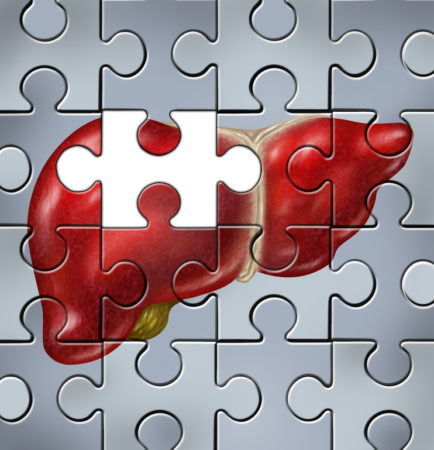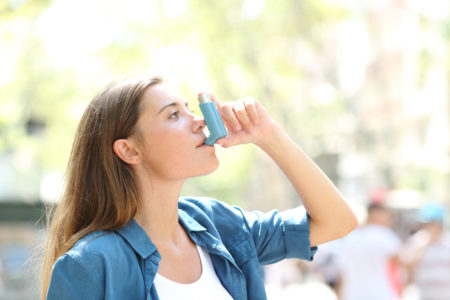Mysteries of Coronavirus (COVID-19) and symptoms still bound in this summer season of 2020. True, the general consensus is we have flattened the curve of the Pandemic. Some believe the virus has begun to degenerate or mutate. Other pundits think the warmer weather has curtailed it.
Mysteries Deepen in our Pursuit of Cures, Vaccines and Therapies

Is It Allergy, Flu, or Coronavirus Attacking With a Cough?
However, that doesn’t mean we have nothing to fear. With summer colds and seasonal allergies on the attack now, Coronavirus is only one of the respiratory diseases we are facing. Coronavirus (COVID-19), Allergy, and Flu are all three respiratory diseases.
Likewise, they all feature similar symptoms at this allergy and asthma-ridden season. As we re-examine the COVID-19 symptoms, our research scientists have begun to unravel some of the mysteries of the coronavirus. And at the same time they are discovering new and surprising symptoms.
As we have hinted in previous blogs, coronavirus (COVID-19) attacks lungs with a different and more deadly strategy than flu or pneumonia. In this blog article, FLASS brings you some of the explanations behind the current coronavirus research studies. We will look at some of the microscopic complexities in this disease. Indeed, coronavirus has revealed many mysteries through its myriad symptoms.
Number One of the COVID-19 Mysteries: Impact of COVID-19 On the Blood Vessels In the Lungs
Here at FLASS (Florida Lung, Asthma and Sleep Specialists, we have discovered an illuminating research study. It recently revealed one of the biggest differences between flu and COVID-19. The scientists searched for a difference in the way COVID-19 impacts blood vessels. You see, in that study were 14 sets of lungs.
- Of that 14, seven sets of lungs came from patients who died of COVID-19.
- The other seven came from 7 people who died of pneumonia caused by the flu.
The Mysteries: Findings from Recent Research
The scientists that studied the 14 sets of lungs, discovered that COVID-19 attacks “the lining of lung blood vessels. Additionally, COVID-19 patients’ lungs had many tiny blood clots…” Likewise they saw that the COVID-19 lungs actually caused the body to grow new blood vessels in response to the disease…” That is a very peculiar mystery.
The research findings give credence to the on-scene reports from care-giving doctors. Doctors who were actually treating COVID-19 patients spoke of widespread damage to blood vessels in the lungs. They also found blood clots. FLASS notes that such findings of damage, clotting and growth simply are not typical in a respiratory disease, like pneumonia or the flu.
Tracing the Vascular Phase of Covid-19
Dr. Steven Mentzer, is a professor of surgery at Harvard Medical School. He stated, “What’s different about COVID-19 is the lungs that don’t get stiff or injured or destroyed before there’s hypoxia [oxygen deprivation].”
He added, “For whatever reason, there is a vascular phase,” of Covid-19,”meaning an attack by the Coronavirus within the blood vessels. The coronavirus adds insult to injury because it additionally makes the patient suffer with the typical “lung damage more often linked with viral diseases such as the flu” he said.
In Covid-19 Cases Only: The Mystery of A Strange Bodily Reaction to Coronavirus

High Risk Groups: Elderly Patients, Black People and Individuals with Chronic Illnesses.
Likewise, as mentioned above, the “lungs from patients with COVID-19 had significant new vessel growth.” This was “unexpected.” Dr. Mentzer explained that the unique lung reaction might have been the body’s attempt to obtain more oxygen.
You see, obviously the tissues were oxygen-starved, which is why doctors prescribed so many ventilators at the crest of the pandemic.
Unraveling the Mysteries of the Coronavirus: the Vascular Phase of COVID-19
The significant new growth of blood vessels might “be one of the things that gets people better,” surmised Dr. Mentzer and his group.
Next, Mentzer and his colleagues attempted to find genetic or other factors in COVID-19 illness. Sadly, they could not find genetic factors. (Perhaps someday they will solve this mystery.) However, they did acknowledge that COVID-19 affects certain statistical groups like:
- Aged patients,
- Black Americans,
- Patients with comorbidities (underlying diseases,)
- And Patients with Diabetes,
More Coronavirus Mysteries
Did you know that, in other coronavirus studies, researchers discovered similar COVID-19 damage and unexpected blood clots in the kidneys and heart?
The damage can even attack the liver. “The CDC and other experts don’t have enough data yet to say how much danger COVID-19 poses for people with liver conditions. But they believe the potential for harm is greater.”
Another Mystery: Thoughts on Multiple Organ Damage from COVID-19
A recent study involved 7,162 patients who tested positive for COVID-19. The results of testing and treatment also showed “those with any chronic health problems” …”only made up 1/3 of these cases.” Yet, incredibly enough, they account for more than 2/3 of the hospitalizations. This included illnesses such as “heart disease, diabetes, lung or kidney disease, or cancer.”
More Symptoms and More Mysteries: A Small Side-Note about Liver and Kidney Studies and COVID-19

Another Piece of the COVID-19 Puzzle: Coronavirus Sometimes Attacks the Liver and Kidneys.
Did you know that when liver cells are inflamed or damaged, they can leak higher than normal amounts of enzymes into the bloodstream? FLASS notes that elevated liver enzymes aren’t always a sign of a serious problem.
But the reason for investigating them in regards to COVID-19 is that they were found previously in people who suffered from SARS or MERS. Those diseases are also caused by types of Coronaviruses.
Liver Patients: Beware of COVID-19
In the first place, a recent COVID-19 study shows that, “among those who have long-term liver disease, 40% were admitted to the hospital, and nearly half of those needed intensive care. The rest recovered at home.
In conclusion, the Researchers declared the small sample size of 41 liver patients in the study prevented making overall general conclusions. In other words, they can’t say for sure if the findings of liver damage from COVID-19 will apply to all liver patients who catch COVID-19. However, certain conclusions can be drawn:
- There is proof that in “some severe cases of COVID-19, the virus may prevent the liver from working right.”
- Up to half of people with COVID-19 “had liver dysfunction at some point during their illness.”
- In many cases, we do not yet know if the reason for liver dysfunction was the virus itself or the medications used in the fight against it.
- We still don’t know for sure if COVID-19 makes an existing liver disease worse. But we do know for certain the coronavirus can’t be good for a liver that is already diseased.
More Mysteries: COVID-19 and Kidneys
In one study of hospitalized COVID-19 patients in Wuhan, 27 percent had kidney failure. Likewise, some people hospitalized with COVID-19 have also suffered acute kidney damage. Sometimes they even require a kidney transplant. This also occurred with SARS and MERS.
It’s Time For Seasonal Allergies—Or Is It COVID-19?
Just as it might be difficult to decide if you have flu or COVID-19, it might be hard to see the difference between an onslaught of allergy and an early attack of COVID-19. Allergies, COVID-19 and the flu have some similar symptoms.
A Roll Call of Signs and Symptoms
The roll call for COVID-19 lists a litany of symptoms we are all too familiar with:
- Fever and dry cough
- Shortness of breath, and difficulty breathing,
- sore throat,
- diarrhea,
- and extreme fatigue.
Other symptoms are not quite so well known. For example, with the coronavirus you might also experience “chills, muscle pain, loss of taste and smell, and body aches.”
Big Differences between Allergies, COVID-19 and Flu: A Closer Look at Differences in Symptoms of the Terrible Trio.
“Be aware you do not usually get fever or diarrhea with allergies,” says Dr. Michael Benninger, chairman of the Head and Neck Institute at the Cleveland Clinic. He explains symptom differences, saying “It’s a matter of taking a logical approach to symptoms.”
He stated, “We’re fully into the allergy season now, “So we know that it’s going to be very difficult for a lot of people at this time to distinguish between their allergies and whether or not they have something more significant.”
- The Sneeze: Sneezing often occurs with both allergies and a cold. But other symptoms can help you tell the difference between them.
- Eyes Have It: However, “Usually a cold doesn’t have itchy eyes,” Benninger said.
- The Questionable Cough: Experts say that if you have a cough, that’s a system more strongly associated with a common cold than allergies…”
- However, there is one significant difference: Coughing can indicate Allergic asthma as well as COVID-19.
Breathing Mysteries, When Breath Makes Diagnosis Difficult
In the face of the identical symptoms, difficulty breathing and shortness of breath, you could have asthma instead of COVID-19. Don’t panic and don’t self-diagnose. Consult your healthcare provider. One special hint: If you don’t have any fever with these symptoms, especially coughing, then it’s highly probable you have asthma rather than COVID-19.
A Special Message to All Asthma Patients: No Mysteries Here!

Summer Season Also Brings Allergy Season… Follow Your FLASS Asthma Action Plan rigorously
We remind you to follow your FLASS Asthma Action Plan rigorously, especially as we re-open the country after the crest of the COVID-19 Pandemic. If you know you have asthma, this is an important time for you to be following your asthma treatment to the letter. You see, if you have asthma, you are at higher risk of severe illness if you contract COVID-19.
Thank you for reading the FLASS blog this week. We hope you have learned some details about the symptoms and the mysteries that differentiate Allergy, COVID-19 and flu.
Having brought up the topic of asthma and seasonal allergies, we look forward to bringing you more information on summer asthma triggers and problems in our next blog. As we increase our outside activities once again, we caution you to take care of yourself. And as FLASS doctors and health professionals have said for years, it’s a matter of life and breath. Stay safe.

